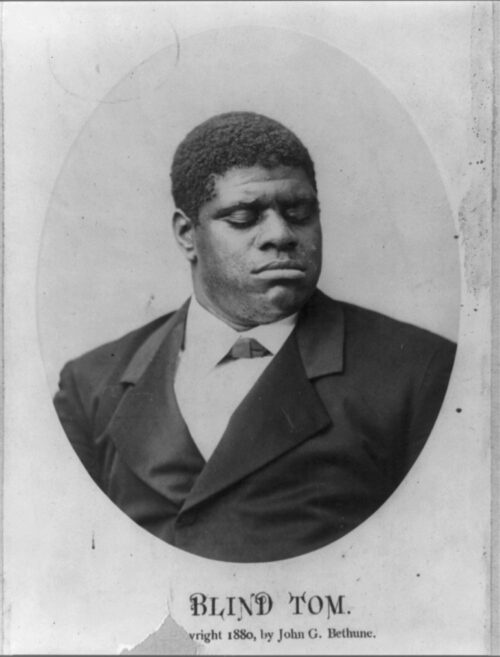Thomas Greene Wiggins, known as “Blind Tom,” was a musical prodigy born into slavery. Despite his blindness and autism, his musical talent was revealed early, as he echoed sounds and composed melodies from age five.
General James Neil Bethune, Tom’s owner, realized his musical talent and began featuring Tom in on-stage performances, captivating audiences across the United States. His performances, often likened to a “Barnum-style freak show,” drew both admiration and criticism, leading to comparisons to animals, all while he flawlessly reproduced pieces after a single hearing.
From playing at the White House before President Buchanan to enthralling Mark Twain, Blind Tom’s talent mesmerized many. However, his exploitation by his owners and managers, reaping immense profits while leaving him and his family destitute, casts a dark shadow over his story.
His involvement in composing a song glorifying the Confederate victory at the Battle of Bull Run during the Civil War sparked controversy, contributing to negative stereotypes about African-Americans. Yet, beneath the exploitation lay a tragic ‘ figure—a blind, autistic individual unaware of the world’s complexities and unable to care for himself.
The turning point arrived with the demise of his exploitative guardian, John Bethune, leading to Eliza Bethune’s victorious legal battle to gain guardianship over Blind Tom. This led Tom to perform in vaudeville before health ailments cut his public career short.
Retreating from public eyes, he continued to play his piano incessantly until strokes silenced his melodies. His passing in 1908 marked the end of a life adorned with talent. This is a story marred by exploitation, leaving a legacy that speaks volumes about the complexities of artistry, exploitation, and the plight of a gifted yet tragically exploited individual.
Source: Talk Africana Ton Wiggins
